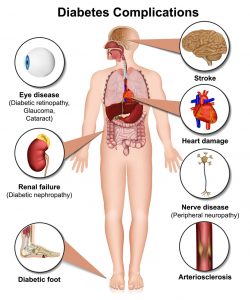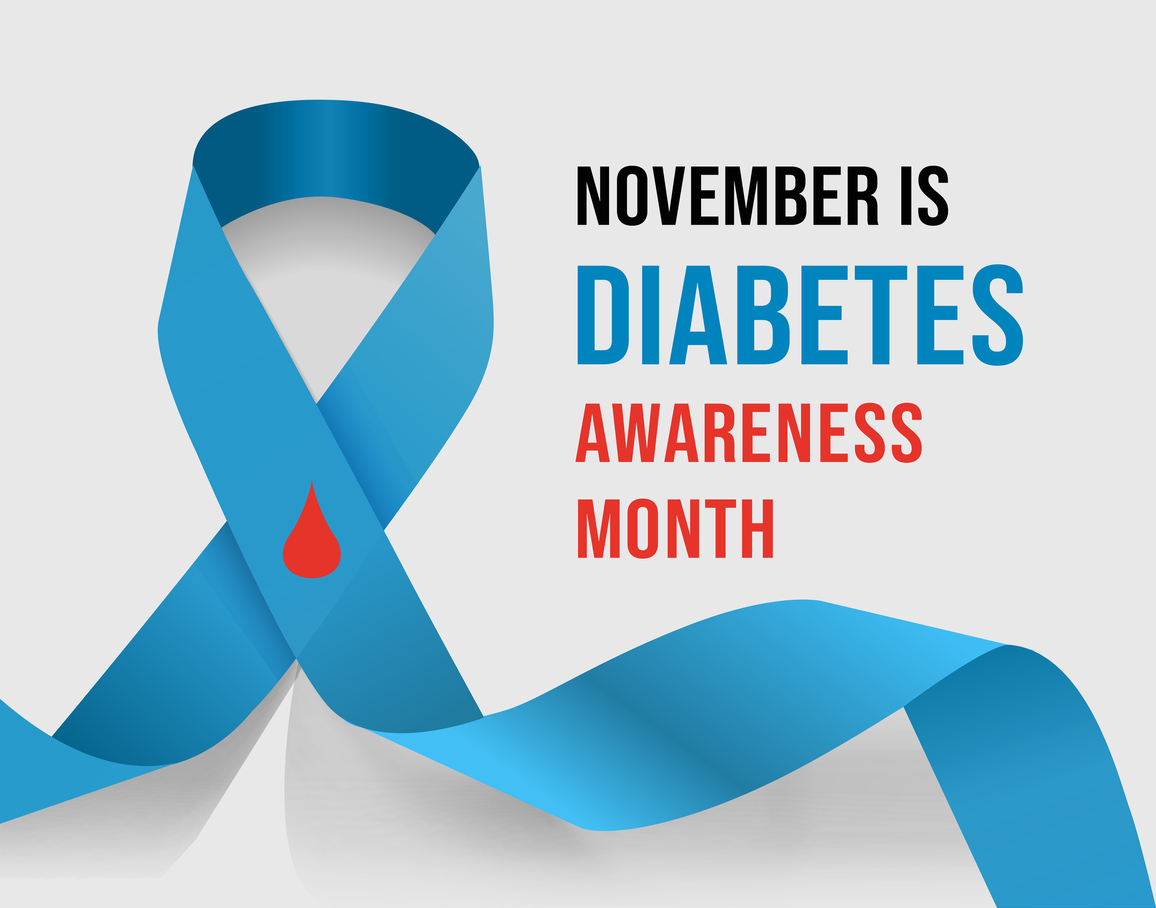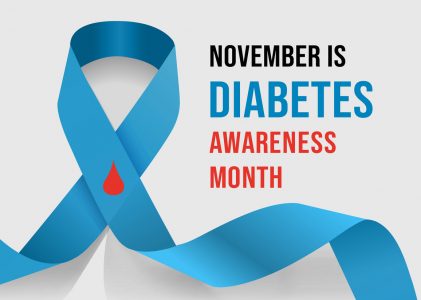This year, take a Big Step Up with the American Diabetes Association during American Diabetes Month in November. This is where you can find many tools to help you live a healthier life in your fight against diabetes whether you’re diagnosed with type 1 or type 2. Taking action and sticking with it is the most important thing no matter where you are with diabetes.
Type 1 and Type 2 Diabetes
Type 1 diabetes usually occurs in children and adolescents but can happen at any age in any race. With type I, the body does not produce insulin, which is a hormone that the body needs to get blood sugar, (blood glucose), into the cells for energy. Anyone with type I diabetes can manage their condition to live a long, healthy life with insulin therapy, proper diet, exercise, and working with their physician. Type 1 is rare and accounts for about 5% of all cases of diabetes.
Type 2 diabetes is most common and occurs when your body does not use insulin properly. A healthy diet is a key part of managing type 2 diabetes, as well as getting enough physical activity. It’s never too late to start taking better care of your health and even mild-to-moderate activity, just a brisk walk a few times a week, will help put you in charge of your life and your diabetes.
Learn more about type 1 and type 2 diabetes and some healthy habits to help you prevent or manage diabetes. Another form of diabetes is gestational diabetes which occurs in pregnant women. This does not mean that you will continue to have diabetes after you give birth and by working with your physician you can have a healthy pregnancy and a healthy baby.
Prediabetes
According to the Centers for Disease Control and Prevention, CDC, about 10.5% of the population in the U.S. has diabetes which equals 34.2 million people. Another 88 million people aged 18 and older are expected to have prediabetes. Just about everyone who develops type II diabetes will have had prediabetes, although there may be no clear symptoms. Therefore, it is important to see your doctor and have your annual physical exams and get your blood sugar levels checked. If you have prediabetes, you can take action to delay or even prevent developing type 2 diabetes
Complications from Diabetes: Vascular and Kidney Disease

Prediabetes can lead to type2 diabetes as well as heart disease and other vascular conditions, which occur when your blood vessels are not working properly. Learn more about the vascular complications of diabetes such as eye disease, nerve damage (neuropathy), heart and diabetic kidney disease (nephropathy).
Kidney damage from diabetes happens slowly, usually over many years. Diabetic kidney disease, also called diabetic nephropathy, affects about 1 in 3 people living with diabetes in the U.S. Diabetic nephropathy is a serious complication of diabetes and affects the ability of the kidneys to do their job of removing waste products and extra fluid from the body. Damaged kidneys do not filter blood like they should, and waste builds up in the body leading to other health problems.
Kidney disease can lead to kidney failure, a life-threatening condition also called end-stage kidney disease. Early treatment can slow the progression and reduce the chance of complication. Learn more about diabetic kidney disease and how to keep your kidneys healthy from the National Institute of Diabetes and Digestive and Kidney Disease.
Know Your Risk of Diabetes
The American Diabetes Association offers a risk assessment tool to help learn your risk of developing type 2 diabetes, along with more information such as recognizing the symptoms and preventing diabetes. If you are at risk, increasing your level of physical activity and making even small changes to your diet can return your blood sugar levels to a normal range.
The American Diabetes Association, ADA, offers a wealth of information, resources, and tools as well as affiliations that can help you manage your condition. If you need help paying for insulin or medication for diabetes, the ADA can help. Help is available at https://insulinhelp.org/, with manufacturers of insulin providing immediate and long-term assistance based on your income, type of insurance and type of insulin needed. Help is a phone call away, knowledge and resources are just a click away, and you are only steps away from improving your condition.
Take a Big Step up today and join millions of others taking action to prevent or improve their diabetes condition.
GWIC cares about your health and wellness and we urge you to see your doctor for regular checkups. If you need to manage your blood sugar levels, know that you can do it with small changes to your diet and activity level and by working with your doctor. Keep taking steps towards your better health and contact GWIC for all your MR imaging needs.


